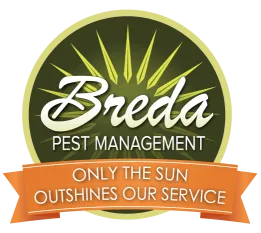Growing up you probably watched a cartoon or two where a termite swarm decimated an entire building in seconds, leaving the hapless hero exposed inside the house. You'll be happy to know that's not exactly how termites work.
In some parts of the world, termites are known as "white ants," and really, they have much in common with those colony dwellers. (The two are not, however, related, and ants are known predators of termites!)Termites, like ants, dwell in colonies, and like bees, have a thoroughly developed caste system comprised of workers, soldiers, and reproducers, with many colonies containing more than one egg-laying queen. While the swarmers don't harm your house or structures, the mature members of the colony certainly do.What does that mean for you and your house?

Well, for starters, termite colonies are typically made up of anywhere from several hundred to several million termites. And what do the mature members of their colonies eat? Wood. They also eat leaf litter, animal excrement, and soil, but its their love of building materials which can cause structural damage to your home.Termites are stealthy insects, remaining hidden until the damage is done. Here in Atlanta, termite swarms are in full effect. February to July are prime months for termite colonies to grow, which happens to coincide with prime real estate season.
What can you do about the termite swarms invading your house? Call Breda Pest Management, for starters. The Breda team will come out and assess your home, checking for structural damage and letting you know if what you're seeing is the result of termites or something else. If termites are present, they'll use infrared technologies to find out just how thoroughly embedded in your home the termites are. Then they'll use Termidor to rid your home of termites for good.If you suspect a colony of termites have moved into your home, call the team at Breda Pest Management today for your consultation!





